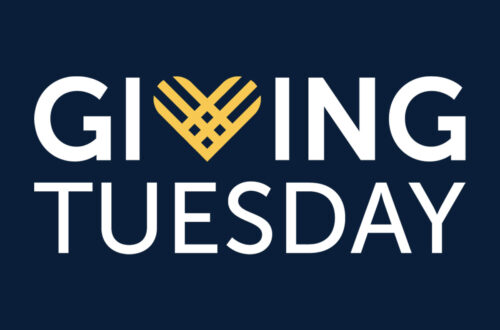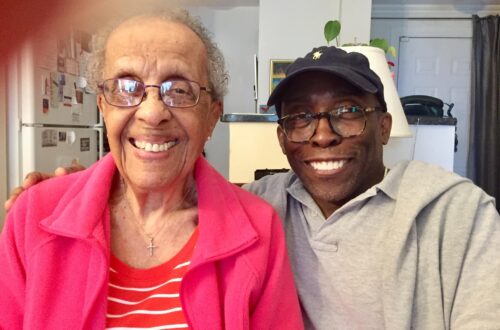
THE NEWS OF PRINCESS Diana’s death hit me like a brick in the face.
I know exactly where I was when I heard the news. I was up watching late night TV in my tiny Studio City apartment when the news anchor read the announcement that Princess Diana had been killed in a Paris car crash. I found it ironic that the most photographed woman in history, who shared the same name as the Roman goddess of the hunt, was herself hunted.
Thanks to my years as Donald Duck, I experienced an unrelenting celebrity of sorts and knew firsthand what it was like to be a sitting duck for the onslaught of people demanding autographs. I understood the pressure to remain calm and composed in the face “of hoards of people’s requests for just “one more” picture. My experience with celebrity did differ significantly from Princess Diana’s in that with my celebrity I could leave that public persona hanging on a rack at the end of my shift. Diana’s lasted twenty-four hours a day, seven days a week.
Diana and I were born in the same year, which made us roughly the same age. With her sudden death, for the first time in my life I gave thought to my own mortality. The question was not where would be my final resting place — that had been settled in church when I accepted Christ as my Lord and Savior.
The glaring questions were: How had I impacted the world? How had I impacted family, friends, and those I came in contact with on a regular basis? Had I made their lives better in some way? Had I inspired them at all? Had I been a source of emotional support to them in their time of need? Or had I been as cumbersome to deal with as a boat anchor in the Sahara under the noonday sun? What legacy would I leave behind?
I watched the live broadcast of the funeral in the pre-dawn hours of September 6, like billions round the world. The royals never intrigued me, nor did I hold any particular fascination with Diana, but to my surprise, there I sat curled up on the sofa in front of my TV in the solace of my darkened apartment weeping for a woman I did not know. I wept for Princes William and Harry, having their mother taken from them at such early ages. Future acts of consolation, encouragement, hugs, and moments when no words need be spoken; all of them lost forever.
I had been to London once, thanks to MTV, and toured St. Paul’s Cathedral; otherwise I had no real reason to be as riveted as I was to the funeral.
I thought about my relationship with my own mother and how different my life would have been if she had been taken from me at either of the Princes’ ages. What would I be like without the countless lessons she lived by example? My mother and I had always been close, but I liked to think that thanks to my sense of independence, no one could say that I was a mama’s boy.
My mother had been a teacher in the Orange County Public School System. For years I was under the impression she taught for thirty-four years, but once she learned of my error, she reminded me that she taught for thirty-eight years. The first ten years of her career she shaped young fifth grade minds, then became an elementary school reading specialist for the following twelve years, and moved to the fourth grade, where she remained until she retired. She had a passion for teaching, which was no surprise to anyone who knew her. When she did anything, she did it well, a trait belonging to both of my parents. America has never given educators the recognition they deserve. My mother used to say “anyone who knows how to do anything, learned it from a teacher.” I agree with that observation.
I knew vicariously the impact a teacher could have on a child’s life, as there were countless witnesses all over Orlando who brought it to my attention more times than I could remember. I couldn’t go to the grocery store, the gas station, the tunnels at Disney, the movies, the mall, anywhere without the following exchange taking place —
“Excuse me, but you’re Mrs. Rivers’s son, aren’t you?” Someone several years my senior would ask.
“Uh, yes.” I answered. I was so familiar with the conversation that I could recite my lines of the dialog, as well as those of the other person right along with them.
“She was my favorite teacher! How is Mrs. Rivers?” They’d ask, holding their breath in anticipation.
“She’s doing fine.”
“Is she still teaching?”
My response for a while was, “Yes, she is.”
Then it became, “No, she’s retired now.” In either case, I knew to ask the following question. “Which year did you have her as your teacher?”
They proudly told me the year my mother taught them and recounted a humorous anecdote that bore the earmarks of my mother. And without fail, they all ended their stroll down Memory Lane with the phrase, “ . . . she probably won’t remember me, but please tell her ‘so-and-so’ said ‘hello.’”
“I certainly will,” I responded and watched the former student continue on their way as if they had just received an “A+” in Social Interaction from my mother.
The encounters never inconvenienced or embarrassed me. They instilled a sense of pride that my mother had such a positive effect on so many people. I felt as if I had vicariously experienced some of my mother’s glory and that always gave me reason to smile. And when I dutifully told her of the “hello” and the sender’s name, she too remembered and had an anecdote to tell about the former student that would bring the transaction full circle.
Once I asked my mother what she had sought to impart to her students over the years and without missing a beat she told me.
Respect: self-respect, respect for others, and respect for the law. And responsibility: for themselves and their actions.
What better lessons for anyone to carry throughout life?
I wept through Diana’s funeral procession and the service, and I couldn’t help but notice the stoic and brave faces Charles, William, and Harry wore for all the world to see as they walked the streets of London. I rubbed my dog Bailey’s belly and thought there would be no way I could muster their fortitude, even though I had always been the master of the game face. I would be too distraught, too emotionally rung out to keep a stiff upper lip under those circumstances. I fell apart at my father’s burial and our relationship had been strained at best.
It wasn’t until I moved out of my parents’ house and got a place of my own and had to juggle the responsibilities of being an adult and taking care of myself that it really hit me. My parents just might have had more than a clue as to what they were doing. Just thinking about working eight hours a day, coming home to take care of three kids, doing housework, the laundry, carting us to the doctor when we got sick, helping with homework, the involvement in after-school activities, making sure we had clothes on our backs, cooking meals for us, and all the other stuff my parents did quite well for years boggled my mind.
The issue of parenting had danced in my head off and on in the past, but it was while watching Diana’s funeral procession that I decided, once and for all, that parenting was not for me. I was too selfish, too self-absorbed. I saw what the demands of parenting did to friends and family: the late nights, the not being able to go and do what they wanted when they wanted, the having to put someone else’s needs in front their own. Ick. Regardless of whatever shortcomings (real or imagined) my parents may have had, I knew irrefutably that they did a good job. I also knew that I wouldn’t be able to hold a candle to their efforts.
I watched Diana’s cortège wind through London as tens of thousands of people gathered in Hyde Park to watch the broadcast and the hundreds of thousands of people lined the streets to pay their respects. Their grief as a whole would not compare to the anguish I would have felt if my mother had been killed in a car crash years ago.
Later that day, I called my mother and told her how much I loved her. It wasn’t that I sensed some impending doom on the horizon. I told my mother often that I loved her via cards, gifts, and on occasion I spoke the words. So I knew there was no doubt in her mind that I loved her a great deal.
But I had to say it again.
Excerpt from: “Walking Tall: A Memoir About the Upside of Small and Other Stuff” by Clay Rivers.


